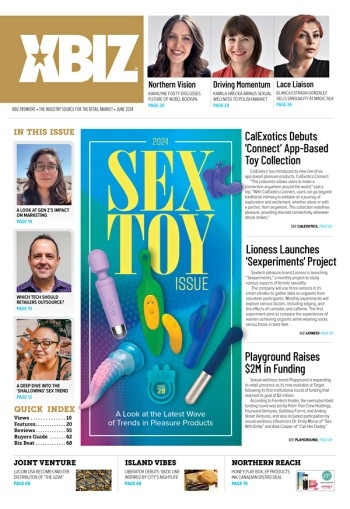The allure to publishers is there. Copy and paste some advertising code onto your website and instantly you’ll make money from an advertising network, like the one I founded over 10 years ago, JuicyAds. It could not be more easy to earn money on websites than it is today.
Some publishers go a little too far and perhaps get addicted to more ads on their websites. They believe that more ads equal more money. I know you’ve seen what I’m talking about ... websites completely filled with dozens of ads or widgets. The fact is (and studies have shown) that this can have a very counter-productive effect.
It can affect both simple matters and complex decisions — everything from what to add to your to-do list or more important things like choosing business partners or which clients to focus on.
Most experienced publishers realize and understand that more ads only equals more money for the short term. It may drive away new visitors and may also lead to alienation of loyal bookmarkers who love the website and come back day after day for their “porn fix” (much like their daily cup of coffee).
Aside from the notion that more ads would contribute to accelerated “banner blindness” (which affects 86 percent of consumers according to a 2013 study), there is something else going on here. A psychological effect called information overload, or decision overload may actually be the cause of reduced click-through ratios in relation to websites cluttered with advertising, and it may be costing you a lot of money.
When people are provided with an abundance of decisions, they often choose — to choose nothing. This goes back to a study published back in the year 2000 about jam spreads (yes the sticky stuff that comes in jars) by psychologists Sheena Iyengar and Mark Lepper.
They found that when shoppers at a grocery store were presented with 24 jars of gourmet jam, they were one-tenth as likely to purchase any jam at all, compared with shoppers presented only with six choices of gourmet jam. The conclusion? More choice isn’t always better, and may have detrimental effects to what you’re trying to achieve.
For a publisher, presenting your visitors with an overwhelming number of decisions and choice will often lead to them making no decision at all and perhaps provoking them to click the dreaded “back” button or (gasp) close the window entirely.
Tube site owners who provide a simpler interface with fewer content choices (but more suited for the visitor) can drive their engagement rates higher. Likewise, this is possible for banner click-through ratios also. Less banners means more clicks on the remaining banners. Seems obvious, but now you know that it’s actually information overload that may be causing this effect.
Decisions can be made for changes in design, reduction of ads, or more strategically testing and placing of ads for added benefit. After reducing ads, the perception of quality of the website (from the visitor’s perspective) will be higher and that advertising space becomes a whole lot more productive and valuable. Seems like a pretty obvious win-win.
Beyond decision overload is something called decision fatigue, that most likely has affected you as an entrepreneur. Personally, I know after trudging through hundreds of emails per day it can cause the overwhelming desire to walk away from my desk.
The effect goes far beyond email, though. It can affect both simple matters and complex decisions — everything from what to add to your to-do list or more important things like choosing business partners or which clients to focus on.
There are ways to combat this, though. First, knowing that this is a real thing affecting your decisions is a good first step. Be aware and make an effort to push to make decisions, as quickly and early in the day as possible.
Second, don’t try to make decisions based on huge amounts of information or choices. Reduce the choices by using some sort of criteria and then make a choice simpler that way. For example, job applicants are often thrown out from consideration simply because their resume contains spelling mistakes. This is one way of accelerating decisions and making the decision much easier.
Third, give yourself a deadline to make a decision, and if necessary make a decision that is “most likely” the best one, rather than striving for the perfect choice. Perfection isn’t possible, and it just delays a good decision.
Finally, if you’re having that much trouble making a decision then either delegate it or simply dismiss the issue altogether. Sometimes the best decisions are the ones that come very easily, and the ones we do not need to make at all.
Juicy Jay is the CEO and founder of JuicyAds, the Sexy Advertising Network. You can follow Jay on Twitter @juicyads, or Like on Facebook.com/juicyads.





